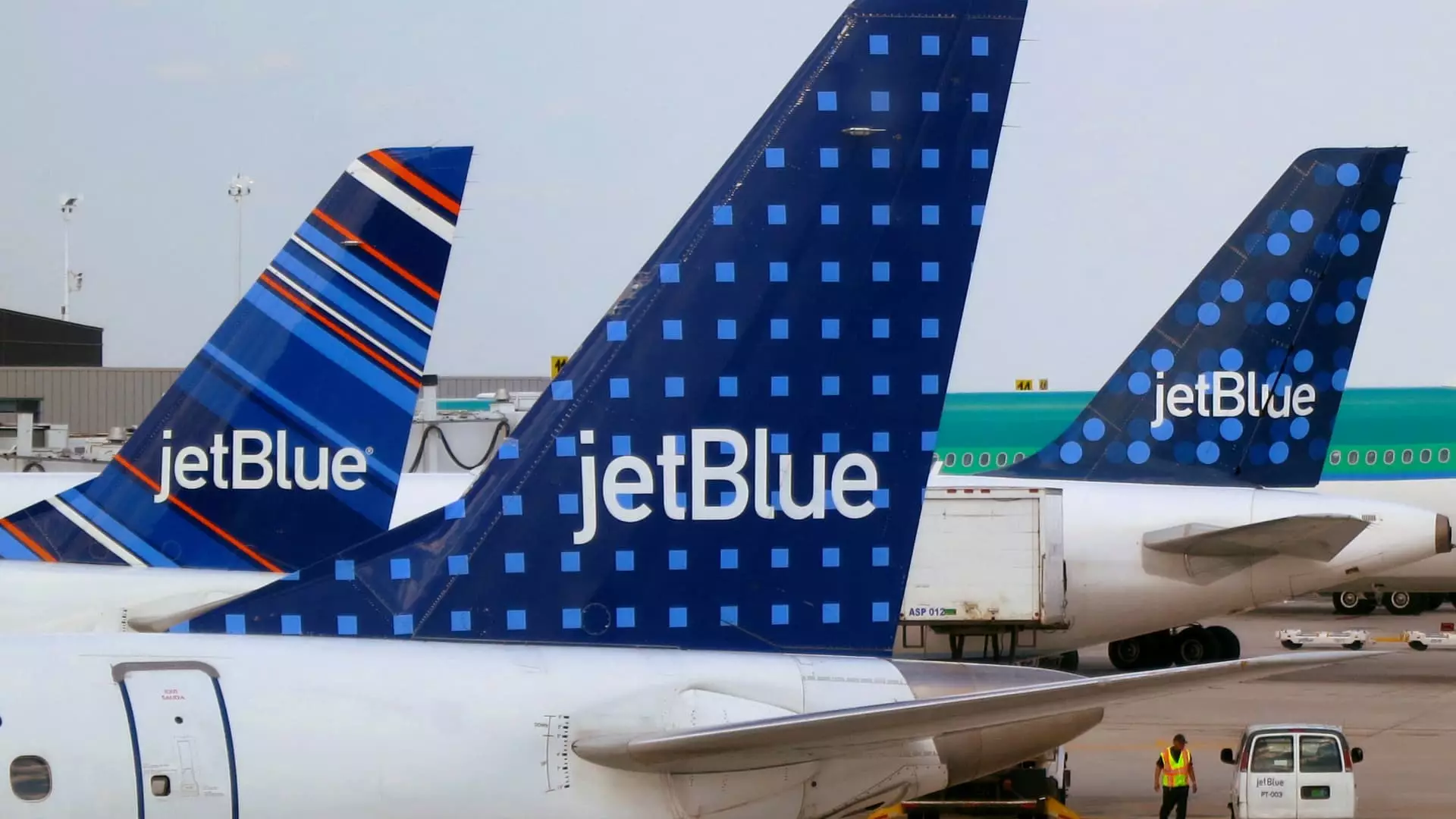In a significant development for the airline industry, JetBlue Airways was hit with a $2 million fine by the Department of Transportation (DOT) for what it termed “chronically delayed flights.” This unprecedented penalty draws attention to the critical issue of flight punctuality and the implications these delays have on consumer trust and airline operations. The Department’s announcement, released on a recent Friday, underscored the growing frustration among government officials regarding airlines’ adherence to realistic scheduling.
The DOT specifically identified four routes operated by JetBlue that were subject to severe delays. Between June 2022 and November 2023, these routes experienced delays of at least 145 times. Notably, these routes include connections between JetBlue’s primary hub, John F. Kennedy International Airport in New York, and Raleigh-Durham International Airport in North Carolina, alongside routes connecting Fort Lauderdale, Florida, to Orlando and Windsor Locks, Connecticut.
The department’s definition of a “chronically delayed” flight is stringent: routes more than 10 times per month must demonstrate over 30 minutes of tardiness for at least half of their scheduled services. JetBlue’s rate stood at an alarming 70% of disruptions on these problematic routes, raising questions about the airline’s operational efficiency and commitment to customer service.
Regulatory Response: Setting Precedents in the Airline Industry
Transportation Secretary Pete Buttigieg’s comments emphasized the DOT’s newly assertive stance on enforcing compliance within the airline industry. He indicated that the fine serves as a warning for all airlines, mandating that schedules must accurately reflect operational capabilities. This marks a potential shift in regulatory oversight, signaling that the government might no longer tolerate systemic failures that inconvenience travelers.
JetBlue’s inability to adapt its flight schedules to mitigate the chronic delays was a critical factor in imposing the penalty. By not adjusting times or routes, the airline fell behind in managing passenger expectations and maintaining reliability. The impact of such delays extends beyond mere inconvenience, affecting the broader operations and financial standing of the airline.
Broader Implications: Accountability and Industry Standards
JetBlue’s response to the fine highlighted a dual-pronged issue concerning accountability in air travel. The airline delegated a portion of the blame to the federal government, arguing that deficiencies in air traffic control staffing and technology contribute significantly to delays. This raises pertinent questions regarding shared responsibility between carriers and federal entities in ensuring timely air travel.
JetBlue’s call for a more robust air traffic control system resonates with other major airlines like Delta and United, suggesting a collective industry concern rather than an isolated issue faced by one airline. Their statements indicate that, while operational mishaps do occur at a carrier level, systemic challenges also create calamities that detract from consumer experience and efficiency.
Despite recent setbacks, JetBlue has shown improvement in its overall on-time performance. From January through September 2024, it ranked ninth among ten U.S. airlines, achieving a 71.3% on-time arrival rate—up from 64.9% the previous year. Yet, maintaining this upward trajectory will require more than just appeasing inquiries from regulatory bodies; it necessitates a strategic overhaul of scheduling practices and operational reliability.
While the DOT granted JetBlue a $1 million credit against the fine for compensation to passengers during the investigation, the acknowledgment of past failures must translate into actionable changes moving forward. Based in one of the world’s most congested airspaces, JetBlue needs to bolster operational strategies to improve its reliability in the long term.
JetBlue’s $2 million fine is a clear signal to all airlines about the importance of maintaining punctuality and managing consumer expectations in an ever-evolving travel landscape. As the airline navigates through these turbulent times, the integration of improved managerial practices and advocacy for modernized technological systems will be crucial. What remains to be seen is whether other airlines will heed this call to reflect upon their operational strategies and contribute to a smoother and more reliable air travel experience for passengers across the nation.

